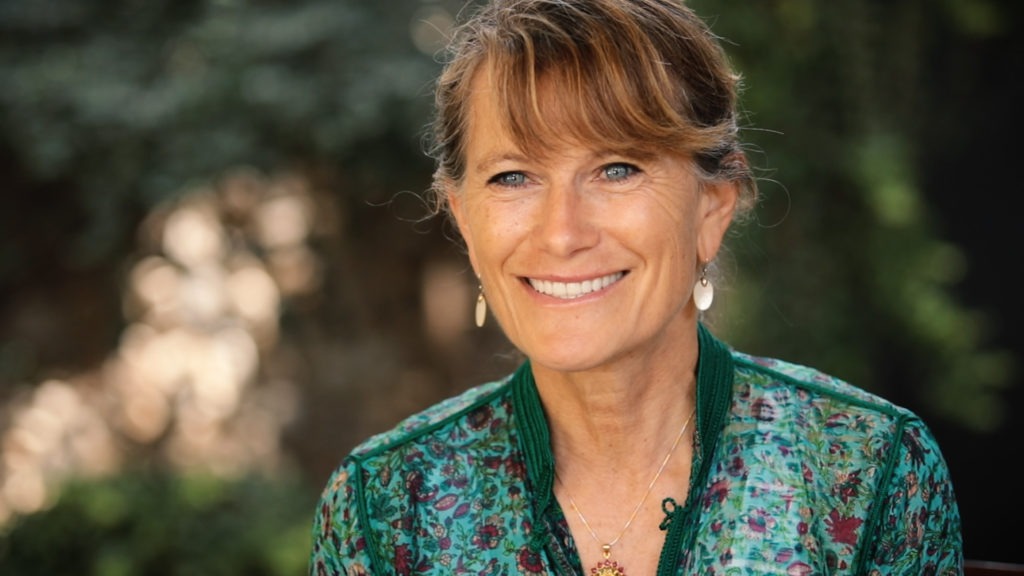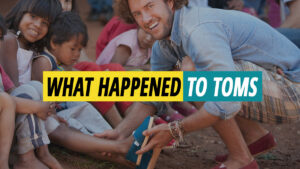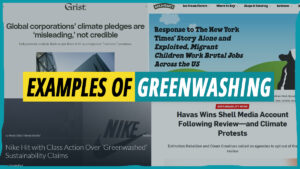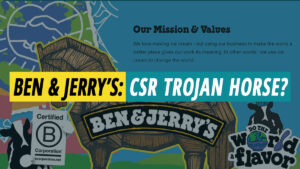Want the audio version of this post? Listen here:
In this post, we’ll share with you our experience of reading and digesting Jacqueline Novogratz’s The Blue Sweater: Bridging the Gap Between Rich and Poor in an Interconnected World
If you, like we here at Grow Ensemble, have the appetite to change the world, we think you’ll enjoy this read.
Founder of the Acumen Fund, Novogratz is a social entrepreneurial success story, and learning even a bit from her experience she shares with us in this book, proves well worthwhile.
Let’s dive in.
Quick Book Summary:
The Blue Sweater: Bridging the Gap Between Rich and Poor in an Interconnected World
In her autobiography, Jacqueline Novogratz details her experience transitioning from a young, ambitious banker, working for Chase Manhattan Bank, into an effective change-maker and social entrepreneur within the developing world.
Her book describes her experience working in Africa, the projects she joined, those she started, and the lessons she learned through each.
Jacqueline opens her book with the story that inspired the title, “The Blue Sweater.” When she was a child in Virginia, she was gifted this specific blue sweater by her Uncle. She absolutely adored it, and to ensure it would be hers forever, she scribbled her name on the tag.
Sadly, in high school, it came time to give the sweater away, and she donated it to Goodwill.
But, this wouldn’t be the last time she and the sweater would cross paths. Almost 10 years later, while on a run through the streets of the Rwandan capital, Kigali, Jacqueline encountered a young boy wearing the exact same sweater.
It even had her name on the tag!
It was this moment, of seemingly impossible odds, that she was struck with how connected the world really is. This experience impressed upon Jacqueline that “our actions—and inaction—touch people we may never know and never meet across the globe.” (p.3)
Like her favorite blue sweater, Jacqueline had traveled an unexpected journey, ultimately ending up in Africa. Confronted with the interconnectedness of the world that led to Jacqueline and this young boy from across the globe sharing the same blue sweater, Jacqueline was driven to understand “what stands between poverty and wealth.” (p.3)
The Blue Sweater provides a roadmap for veteran and budding world-changers alike. Jacqueline’s story weaves together guideposts for creating social change by sharing her journey through her many failures and triumphs as she sought to bring economic opportunity to communities in Kenya and Rwanda.
She depicts herself as a fish out of water—a white American entering an unfamiliar culture, economy, and professional environment seeking to put her skills to use with little context at first.
Her recount of her struggles learning the nuance of her new community is at times uplifting and inspired, and at other times heartbreaking.
With, at first, little experience with the business community in the region, a low proficiency in the local languages, and an unfamiliarity with the regional and professional politics, Jacqueline Novogratz came to realize that she needed a transformational shift in thinking to create effective programs that would provide economic opportunities to people often left out of the entrepreneurial sector, like poor women often deprived of opportunities for economic independence.
After a brief stint back in the United States, graduating from Stanford Graduate Business School, Jacqueline returns to Rwanda for the first time after the Rwandan genocide in search of some understanding of the1994 atrocities.
As she reconnects with her old friends, she meets with some friends who are now courageous survivors of the Rwandan genocide, and others accused as being aggressors. She describes the unsettling reality that not all questions have answers.
Jacqueline Novogratz’s journey of social change takes us from a Nairobi slum to government buildings in Pakistan. Through her anecdotes, she shares the story of her journey learning how to put her passion and desire to make positive change into practical and effective use.
Ultimately, we are left with a story of relentless commitment to economic justice and inspiration to think about change on a global scale. The pages of Jacqueline’s social entrepreneurship book offer mentorship to anyone who is interested in leaving the world a better place than they found it.
Author Bio: Jacqueline Novogratz

As a young idealist, Jacqueline was certain of her calling to explore the world, which made it surprising when she found herself working as an international credit auditor for Chase Manhattan in New York, who courted her with the travel that would accompany international banking. Jacqueline learned the ins and outs of finance and credit loaning with Chase and discovered the philosophy of microfinancing as a way to broaden economic development.
Jacqueline reached out to leaders in the microfinancing space, which eventually led to an offer to join their work in Africa. Despite her long-held desire to work in Latin America, she gave notice to Chase and took the new opportunity. Her first experience working at the African Development Bank in Cote d’Ivoire was a rocky beginning to her, what would be a lifetime, work in Africa.
In 1986, Jacqueline Novogratz started her journey that would ultimately lead her to become an impactful social entrepreneur providing credit and loans to individuals and small businesses often excluded from traditional banking systems. In 1987, she co-founded Duterimbere—a microfinance institution that sought to redefine the economic role and earning-power of Rwandan women.
Here is just a “short list” of what Jacqueline Novogratz has accomplished in her professional life since dedicating herself to social impact:
- Aforementioned microfinance institution, Duterimbere
- UNICEF consultant
- World Bank Consultant
- Founder & Director of The Philanthropy Workshop and The Next Generation Leadership Programs at the Rockefeller Foundation
- Founder of Acumen
- Board member for the NYU Stern Center for Business Human Rights and The Harvard Business School Social Enterprise Initiative
- Aspen institute Board of Trustees
- Appointed to the Foreign Affairs Policy Board by then Secretary of State, Hillary Clinton
Needless to say, Jacqueline Novogratz has made it her life’s mission to improve the lives of others.
She has been recognized countless times for her work and has more honorary degrees than Michael Jordan does NBA championships.
7 to be exact!
However, her titles and awards wouldn’t have come without the major impact she created.
Notably, her nonprofit impact investment fund, Acumen, has widened the scope of those able to get loans through microcredit loans to the working class and long-term investments in local economies around the world.
The Acumen fund approaches the issue of global poverty differently than traditional banking and traditional charity organizations. Focusing lending to local entrepreneurs to grow their businesses through microcredit lending, or what Acumen refers to as “patient capital,” they create self-sufficient and sustainable local economies.
This new form of philanthropic investment changed the lives of over 260 million to date.
Key Quotes & Lessons
Here are a few quotes we loved with corresponding reflections:
“The story of the blue sweater has always reminded me of how we are all connected. Our actions—and inaction—touch people we may never know and never meet across the globe.” (3)
As Jacqueline reminds us, we don’t often get to see the full implications of our day-to-day actions (or inaction).
In her case, she saw from start to finish, the journey of this sweater. From being gifted as her Uncle’s thoughtful gift, to being donated to a local Goodwill, to being brought back again by a young boy in Africa.
This case is a relatively positive one: when Jacqueline no longer had use for this sweater, her donation found its way to someone who would give a second life.
But, this cycle can take many forms. What happens when we throw something away that could be recycled or reused? It ends up in the landfill or ocean. What happens when we don’t act to help a person (or country) in need? Prolonged, and perhaps avoidable, suffering and poverty.
“We don’t hate you. We actually like that you’re a nice girl with much to offer. What we hate is what you represent. The North comes to the South and sends a young white woman without asking us what we want, without seeing if we already have the skills we need. And this from an organization that says it wants to promote solidarity. We’ve seen this too many times before. Africa will never change if it’s always like this.” (28)
While not completely surprised, Novogratz wasn’t “welcomed” to the communities she was commissioned to work in throughout Africa.
After seeing plenty of aid workers come and go, plenty of outside money sent into Africa with no consideration of the needs and priorities of the local people or the local women already doing the work, she (a white woman from the United States), was received with skepticism.
Many people have the strong desire to make the world a better, more equitable place. And if that passion motivates someone to take action, that is undoubtedly applaudable progress. But, perhaps one of the most valuable lessons we got from The Blue Sweater is Jacqueline’s telling of her stumbling efforts learning that serving communities is a skill. Like all valuable skills, it must be learned, practiced, and honed.
To create substantive and systemic change in any community, outside aid must not just consider but should take complete direction from, the local people and groups they are attempting to support and serve.
To understand what communities might need in efforts to support themselves or improve their standard of living, perhaps we should ask first before we act.
“Philanthropists should find innovations that release the energies of people. Individuals don’t want to be taken care of—they need to be given a chance to fulfill their own potential” (142)
It’s not handouts that people want, but it’s a sense of dignity, purpose, and ownership over their lives that they need (as we all do).
Whether that’s our population of people experiencing homelessness in the U.S. or the refugees seeking support at international borders, everyone seeks to have a sense of control over their lives and their future.
To achieve long-lasting change within whatever communities we intend to serve, we must provide meaningful opportunities, not just the short-term bandaids of donations and traditional aid.
“After more than 20 years of working in Africa, India, and Pakistan, I’ve learned that solutions to poverty must be driven by discipline, accountability, and market strength, not easy sentimentality.
I’ve learned that many of the answers to poverty lie in the space between the market and charity and that what is needed most of all is moral leadership willing to build solutions from the perspectives of poor people themselves rather than imposing grand theories and plans upon them.” (272-273)
Solutions to the chronic problems facing our global community cannot possibly be simple.
There’s no single solution, rather, as Jacqueline reminds us, solutions to issues like poverty will
inevitably be complex, cross-sector, and require a great deal of evolved leadership.
And of course, solutions can’t possibly come from the top down. Rather, they must be completely invested in on the ground level and directed by those individuals and communities the solutions support and serve.
Books Similar To: The Blue Sweater

Henry Burgess-Marshall
Entrepreneur & Student
Henry is an entrepreneur based out of Seattle, WA. He Co-Founded Maribel, a creative agency, that provides small businesses with marketing, brand strategy, and business development support.
He is an avid reader, writer, and lover of nature, and he is currently pursuing a Masters of Education in School Counseling and Guidance Services from Seattle University.






Leave a Reply